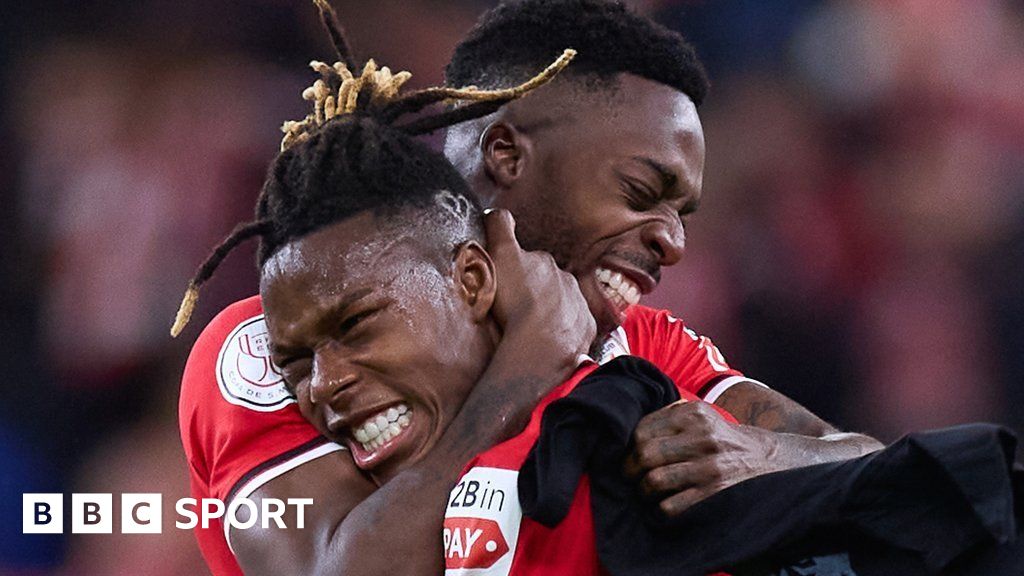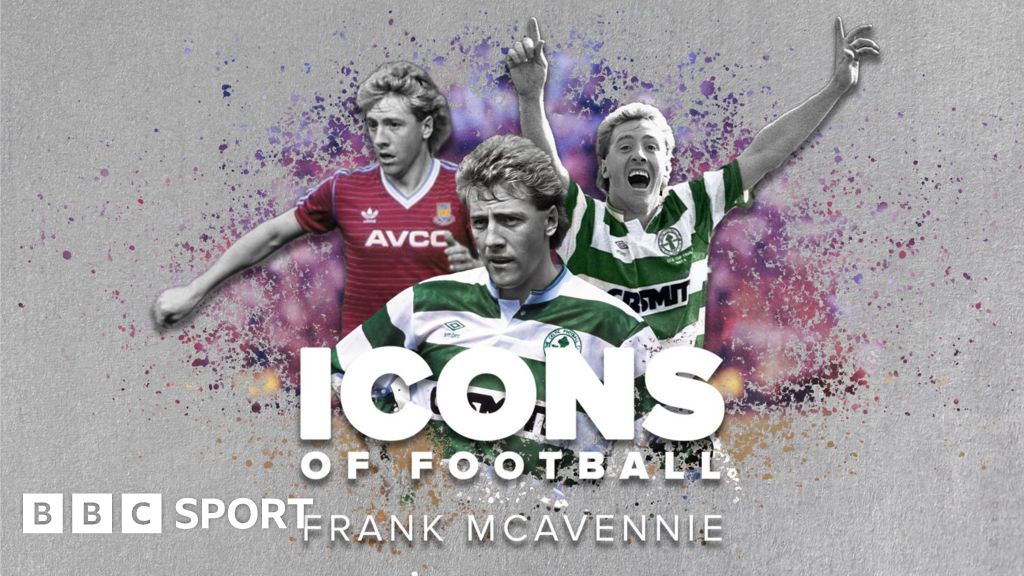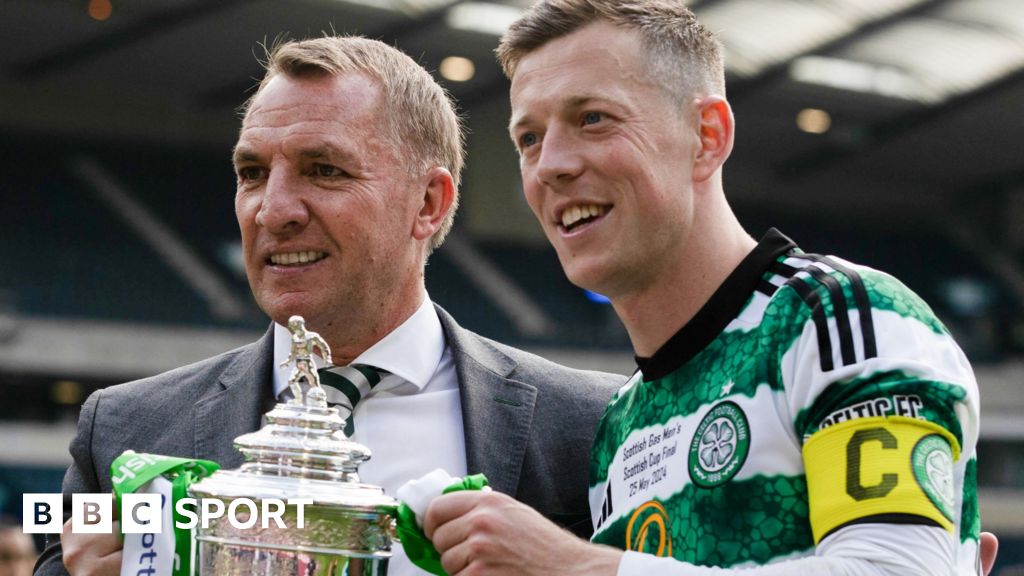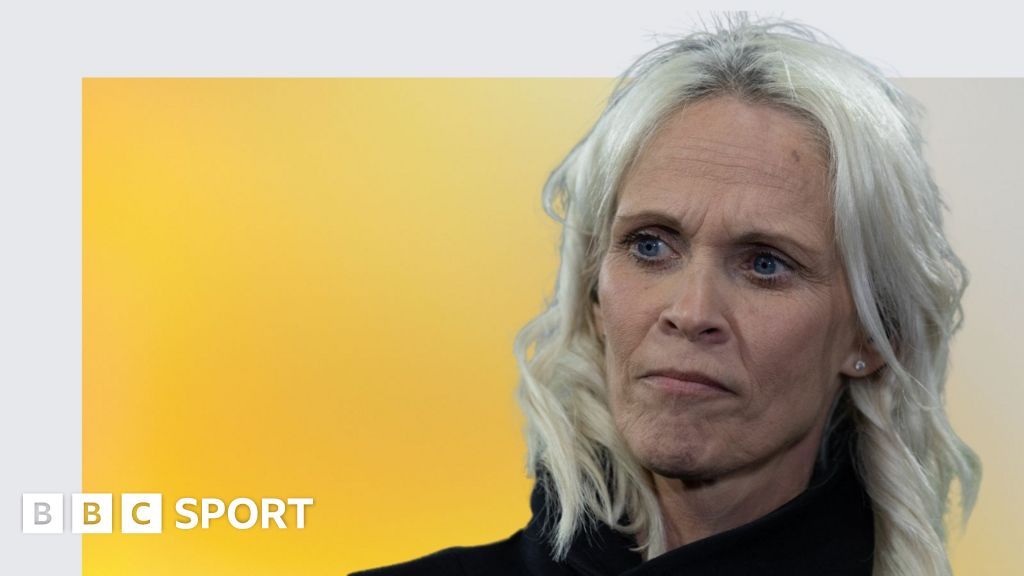
Inaki and Nico Williams: Two brothers, one club and a 40-year wait
Near the stadium, in the heart of the city, banners flutter and even a mannequin in a wedding dress sports an Athletic scarf in a bridal shop window.
The club have been the bridesmaid too many times since their most recent Copa del Rey triumph in 1984.
Six final defeats, including two in as many weeks when the pandemic delayed a heartbreaking loss to rivals Real Sociedad, have followed.
There is a sense that, with Mallorca 15th in La Liga, this is Athletic's best opportunity yet to end a long wait for major silverware.
The brothers, playing either side of the front three, have been fundamental in this cup run. Immediately after Ghana were knocked out of the Africa Cup of Nations, Inaki, flew back via Paris to arrive in Bilbao at 11am on the day of the quarter-final against Barcelona.
He came off the bench that evening to score in extra time before setting up Nico in a 4-2 victory.
Then, in the 3-0 semi-final second-leg win against Atletico Madrid, they assisted each other again. San Mames, 'the Cathedral', rejoiced.
"In terms of football, they are key," says Herrera. "But on the personal side they are fantastic guys, always positive, always smiling.
"Even when they argue, which we have seen a few times, like a brother discussion, it is so funny for us and we love it."
Just don't mention La Gabarra.
In the successful 80s, when Athletic won back-to-back titles and the double in 1984, it became tradition for players to celebrate on a barge on the River Nervion.
Some believe talking about it since has become a jinx.
Pictures from those triumphs show a different Bilbao, an industrial city. Now it is an innovative hub of contemporary architecture with the Guggenheim museum, situated on the riverbank where a factory once stood, at the heart of its regeneration.
The football club reflects and embraces change, too. Throughout the youth system there are now players whose parents moved from Africa, South America or elsewhere. Midfielder Junior Bita, born in Ivory Coast, made the matchday squad last season. In the summer winger Alvaro Djalo will join from Braga. He is of Guinean descent and moved to Bizkaia as a baby.
"It was just part of the historical process of the country," explains journalist Benat Gutierrez. "The Basque Country got a lot of immigrants before, but they were coming from other parts of Spain, therefore they were mainly white.
"African immigrants started coming in the late 80s, early 90s, probably the bigger influx in the 2000s, and it was just younger adult men who were not ready to start a sports career here.
"It has been a process until we are seeing the sons or even the grandsons of those new Basque citizens that are starting to be really important for Athletic."
The club's all-Basque selection policy began following a dispute about Athletic using English players in the 1911 Copa del Rey. With the Spanish football federation introducing a rule the following season that players must be Spanish, an aggrieved Athletic went one step further.
Through stubbornness and success, picking from a population of about three million has worked for more than a century - Athletic have never been relegated from Spain's top tier and trail only Real Madrid and Barcelona in terms of trophies won.
Critics call it xenophobic or racist. Some cite the case of Miguel Jones, a Bilbao native born in Equatorial Guinea who trained with the club. Policy at the time, however, dictated players must be born locally, so Jones was let go and instead enjoyed a successful career at Atletico Madrid in the 1960s.
Jones himself dismissed claims of racism, citing white players who experienced the same fate, and celebrated Inaki's emergence before his death in 2020. Perhaps more poignant than a trophy, then, will be the Williams brothers' legacy.
"It has been very rewarding to see how Athletic has evolved across time," says Gaizka Atxa, the Mexico-born founder of a fans' group named after Fred Pentland, a legendary former English coach of the club.
"Athletic is a reflection of our society here and seeing the Williams brothers flourish means that any immigrant or son of immigrants has a decent opportunity to play for our club.
"That just opens wide possibilities as to what Athletic could become in the next few decades."
How long they will continue to flourish together is a topic of debate. Nico, who wears 'Williams Jr' on his back, is highly sought-after, notably from Chelsea, where his father once tore tickets.
The 21-year-old's individual goal, external against Atletico in December was one of six he has scored in 29 games for Athletic this season. He is also joint second in La Liga's assist standings.
"Inaki is helping Nico a lot in everything," says sporting director Gonzalez. "Nico is a very good player, but he is very young and you can imagine a lot of noise around him with clubs, with agents. But Inaki is the best example of hard work."
Athletic fans can reluctantly accept when a star player goes as long as they leave money - in the form of a fat transfer fee - on the table. Aymeric Laporte, a £57m departure to Manchester City, for example. Nico's previous contract was due to expire in June 2024, but in December he signed an extension through to 2027, under his brother's guidance.
"Inaki, of course, was also in on these decisions with his family," says Gonzalez. "They feel very well here in Bilbao. They believe in the project. They are very happy with the team, with the coach, with everything. They also have the love of the supporters.
"For sure, at another club Nico could have gone for free to a Champions League club, earning much more money or winning more titles. But in this moment he has the feeling he has to continue here and Inaki is a very important person for him to take the best decisions in his professional career."
In any case, Nico and Inaki have unfinished business in Bilbao, a cup final to win - for the fans, for the city, for the club, for Felix and Maria.





